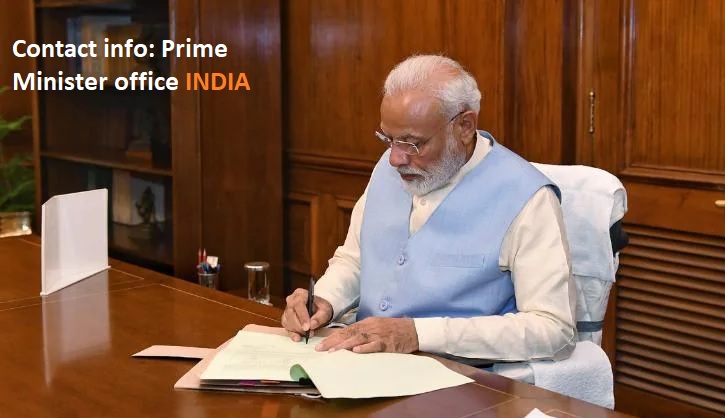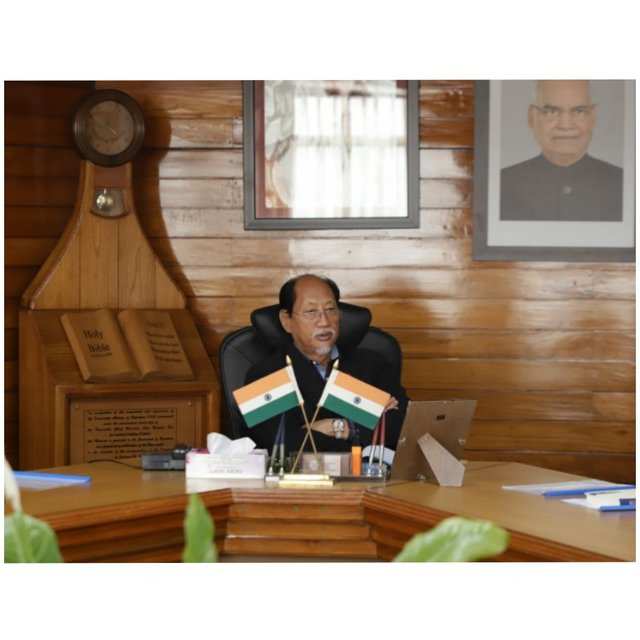PRIME MINISTER OF INDIA
Appointment of the Indian Prime Minister
There is no such procedure laid down in the Constitution for the appointment of the Prime Minister of India. According to Article 75 of the Constitution, only the Prime Minister can be appointed by the President.
It can be further explained as President has to appoint the leader of the majority party in Lok Sabha as the Prime Minister. But the discretion can be exercised by the Indian President while appointing the Prime Minister when there is no party in the majority in Lok Sabha. Generally, in such a case, the leader of the largest party or coalition in Lok Sabha is appointed Prime Minister by the President. Then he is supposed to seek a vote of confidence in the house within a month.
Oath to the Prime Minister of India
Before the Indian Prime Minister enters upon his office, the oath is administered by the President to him. The oath of office and the oath of secrecy are administered to the Prime Minister.
In the oath of office, The Prime minister swears :
1. To bear true faith and allegiance to the constitution of India,
2. To uphold the sovereignty and integrity of India,
3. To faithfully and conscientiously discharge the duties of his office,and
4. to do right to all manner of people in accordance with the Constitution and the law, without fear or favour, affection or ill will.
TERM :
The term of the Prime Minister coincides with the normal term of Lok Sabha which is five years. He may be re-elected and no term limits are specified in the Constitution.
The term of the Prime minister is not fixed and he holds office during the pleasure of the president. However, this does not mean that the president can dismiss the Prime minister at any time. So long as the Prime Minister enjoys the majority support in Lok Sabha, he can not dismissed by the president. However, if he loses the confidence of the Lok Sabha, he must resign or the President can dismiss him.
SALARY :
The salary and allowances of the Prime Minister are determined by the parliament from time to time. He gets the salary and allowances that are payable to a member of parliament . Additionally, he gets a sumptuary allowance, free accommodation, travelling allowance, medical facilities etc.
Powers and Functions of the Indian Prime Minister
Being the head of the government, various functions and powers are bestowed upon the Prime Minister of India. These are:
1. Prime Minister recommends the President regarding the appointment of ministers. The nomination of members of the council of ministers is done by the Prime Minister to the President.
2. The allocation and reshuffling of various portfolios among ministers is done by the Prime Minister. If any portfolio is not allocated to any cabinet member, the Prime Minister may retain it.
3. The activities of the council of ministers are guided, coordinated and controlled by the Prime Minister.
4. The meeting of the council of ministers is presided over by the Prime Minister.
5. Prime Minister has the power to ask a minister to resign or advise the President to dismiss him in any case of difference of opinion.
6. The resignation of the Prime Minister results in the collapse of the cabinet of ministers. The entire council of ministers dissolves on the death or resignation of the Prime Minister.
7. Prime Minister advises the President regarding the appointment of:
(a) Attorney General of India.
(b) Comptroller Auditor General of India.
(c) Election Commissioners.
(d) Chairman and members of:
i) Union Public Service Commission,
ii) Finance Commission and so on.
8. Prime Minister is bound to communicate the decision made by the council of ministers in relation to administrative affairs and legislative proposals, which the President may ask for.
9. Prime Minister shall furnish the information as President may call for in relation to administrative affairs and legislative proposals.
10. If required by the President, Prime Minister shall submit consideration of the council of ministers on any matter regarding which a decision has been taken by the minister but was not considered by the council.
11. As Prime Minister is the leader of the Lok Sabha, he has the power to:
(a) advise the President regarding the summoning and proroguing (discontinuing) session of parliament.
(b) recommend President to Lok Sabha at any time.
(c) announce government policies on the floor of the house.
Other functions of the Prime Minister.
The Indian Prime Minister plays various roles like:
12. The Prime Minister is the chairman of the National Development Council, NITI Aayog, National Integration Council, Inter-State Council and National Water Resources Council.
13. The Prime Minister plays a vital role in shaping a country’s foreign policy.
14. The Prime Minister is the spokesman of the Union Government.
15. The Prime Minister is the crisis manager-in-chief at the political level during emergencies.
16. The Prime Minister of India is the leader of the party in power.
17.He is the political head of services.
In relation to parliament : The Prime Minister is the leader of the Lower House.In this capacity, he enjoys the following powers:
1. He advises the President with regard to summoning and proroguing of the sessions of the Parliament. 2.He can recommend dissolution of the Lok Sabha to President at any time. 3. He announces government policies on the floor of the house.
THANKS FOR READING.......



No comments:
Post a Comment